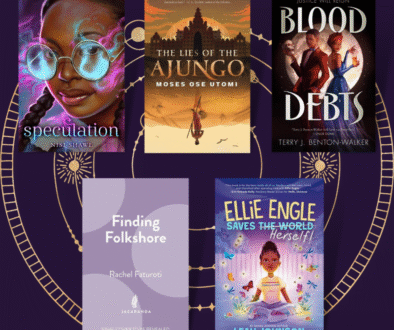The Plot Thickens: So Many Beginnings

Black girlhood is an undersung experience, especially in periods where most can only conceive of their oppression, such as the years of 1863-1866 covered in So Many Beginnings: A Little Women Remix. We are lucky then that Bethany C. Morrow, champion of Black girl to womanhood, helms this venerable entry into the lexicon, using her sharp observance in depicting the nuanced dynamic among the ladies of the March family behind the overwhelming challenges they face.
It has never been easy to be a Black woman in Western society, yet we have never had any issue finding our joy. For the March sisters: Meg, Jo, Beth, and Amy (in age order), nothing brings them more joy than reveling in each other’s hopes and dreams, aiding these pursuits where they can. For Meg, that means encouraging her burgeoning hopes of finding the ideal suitor in a community still finding its footing post-Emancipation with several prospects enlisting in the Civil War. As the oldest March daughter, she’s the one most adept at gauging how their family’s talents and needs can best be met under the guidance of the mother, Minnie. So when it comes to Jo’s possible pursuit of writing and romance, it is Meg who makes the suggestion that helps both Jo and Amy move closer to their dreams. Amy, in typical youngest child fashion, cannot sit still such that even her untrained dancing catches the attention of a young white woman with a connection to a dancing academy in Boston. She is excited to take on this opportunity despite the heartsickness it brings on being away from much of her family. However, Boston may hold more than enough excitement to take matters of her heart into another direction entirely. Kept home to treat a mysterious chronic illness, Beth tends to use her talent as a seamstress to explore the area around Roanoke Colony. Yet, seeking better understanding for the disease that ails her may lead her onto the greatest journey of any March family member.
As a lover of historical fiction, I was excited to learn that Morrow was taking on the genre by remixing Little Women—a story that I enjoyed in middle school but which didn’t hold up for me as an adult. How could it when it presents an idyllic white womanhood devoid of any true analysis of the world around them during the Civil War? Morrow shows that being Black means never having the convenience of ignoring the impact of the world around us on our daily lives—because most things impact us. In this novel, we see Meg make decisions that weigh the level of literacy she can help the freedmen in their community achieve. Jo joins in on community efforts from building houses to writing about her enslavement in hopes of popularizing the intense reality of Black life. Every March lady makes her voice heard and considers the best way to envision lives of their own while pushing back at any signs of oppression in their emancipation—Beth, in particular, refuses to use materials once worn by the people who owned the big house near the colony. This precise examination of the U.S. as it is in 1863, which sadly mirrors much of the U.S. today, is the insightful voice that I’d hoped to hear in Morrow’s handling of this material and research of this period.
If you, too, are a sucker for a good historical fiction piece, especially one that centers Black girlhood, then you simply MUST pick up this book. Come for the familiar family dynamic, stay for a fresh remix that gives exactly what needs to be given.
Join us tomorrow, September 8th at 5pm Pacific/8pm Eastern on Instagram Live as Porshèa speaks with Bethany C. Morrow about So Many Beginnings as part of FierceReads Remixed Roadtrip Tour, hosted by Blue Willow Bookshop!



